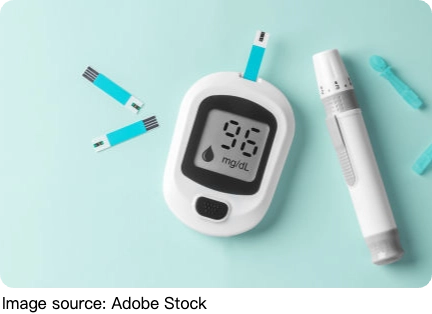Balance Blood Sugar: How?

Maintaining balanced blood sugar levels is foundational to metabolic health, particularly for individuals managing diabetes or prediabetes.
Blood glucose balance is not about drastic lifestyle changes alone but involves intentional, science-driven daily habits that optimize insulin response, glucose utilization, and overall metabolic function.
Understanding Blood Sugar Regulation
Blood sugar (glucose) is the primary energy source for body cells and is tightly regulated by hormones, chiefly insulin. Imbalances occur when glucose levels rise excessively after meals or fall too low, leading to health complications. Effective blood sugar control reduces risks of chronic complications and improves quality of life.
The 10-10-10 Rule: A Simple Routine for Stability
A recent approach known as the 10-10-10 Rule integrates three brief daily practices:
10 minutes before meals: Pause to prepare, mentally and physically. This can include monitoring blood glucose for those who require it, hydration, or deep-breathing exercises to reduce stress hormones that affect insulin sensitivity.
10 minutes after eating: A short walk improves glucose metabolism by stimulating muscle glucose uptake without relying solely on insulin.
10 minutes of daily reflection: Mindful awareness supports adherence to healthy choices and stress management, which directly impacts glucose control.
Nutritional Strategies Specific to Glycemic Control
Controlling blood sugar involves more than just reducing sugar intake, it requires understanding carbohydrate quality and meal composition:
- Emphasize complex carbohydrates with high fiber content such as legumes, whole grains, and vegetables, which slow glucose absorption.
- Limit consumption of processed and added sugars, often hidden not only in sweets but also in savory processed foods like sauces and dressings.
- Pair carbohydrates with protein and healthy fats to moderate glycemic impact and prolong satiety.
Such targeted nutritional choices blunt rapid glucose spikes and reduce insulin demands, crucial for maintaining balance.
Physical Activity as a Glucose Moderator
Regular, moderate physical activity enhances insulin sensitivity by increasing glucose uptake in muscles. Engaging in even brief postprandial (after meal) movement aids in preventing hyperglycemia and promotes metabolic flexibility. Notably, this approach complements, but does not replace, medical treatments where applicable.

The Role of Psychological and Behavioral Factors
Stress triggers hormonal changes that elevate blood glucose independently of diet. Mindfulness, stress reduction techniques, and deliberate pauses before eating can influence glycemic responses positively. This dimension is often underestimated but critical for comprehensive blood sugar balance.
Dr. Richard Bernstein, a pioneering diabetologist, emphasizes the importance of controlling glucose intake: "You control the amount of glucose you put into your bloodstream. Put in less glucose, the body produces less insulin, promoting healthy metabolism and weight control." This underscores a fundamental principle of metabolic control related to diet and lifestyle.
Additionally, Dr. Mark Hyman, a well-regarded leader in functional medicine, highlights the synergy of lifestyle factors: "Balancing blood sugar is not about restricting carbs but about quality, timing, and pairing with balanced nutrition and movement. It’s an orchestrated balance of habits." His perspective supports integrated approaches combining nutrition, activity, and behavioral therapy.
Balancing blood sugar involves a multifaceted strategy integrating scientifically supported habits such as the 10-10-10 Rule, precise nutritional choices emphasizing low glycemic index carbohydrates and careful meal construction, and incorporation of regular physical activity.
Psychological mindfulness and stress management also play indispensable roles. Adopting these strategies collectively improves glycemic control, mitigates risks of metabolic complications, and enhances overall well-being.
By blending these latest insights with expert guidance, individuals can navigate blood sugar regulation with clarity, precision, and achievable actions rooted deeply in current medical understanding.
-
 Gold Traps You Must DodgeAvoid These Gold Traps – Investors Are Losing Millions!
Gold Traps You Must DodgeAvoid These Gold Traps – Investors Are Losing Millions! -
 Tetanus Risk in Injuries!Stepped On A Nail Or Got A Scratch? Could That Small Wound Lead To Tetanus?! Are You At Risk?!
Tetanus Risk in Injuries!Stepped On A Nail Or Got A Scratch? Could That Small Wound Lead To Tetanus?! Are You At Risk?! -
 POTS & DizzinessHeart Races When You Rise? Could POTS Be Behind Your Dizziness?! What's Your Body Hiding?!
POTS & DizzinessHeart Races When You Rise? Could POTS Be Behind Your Dizziness?! What's Your Body Hiding?!